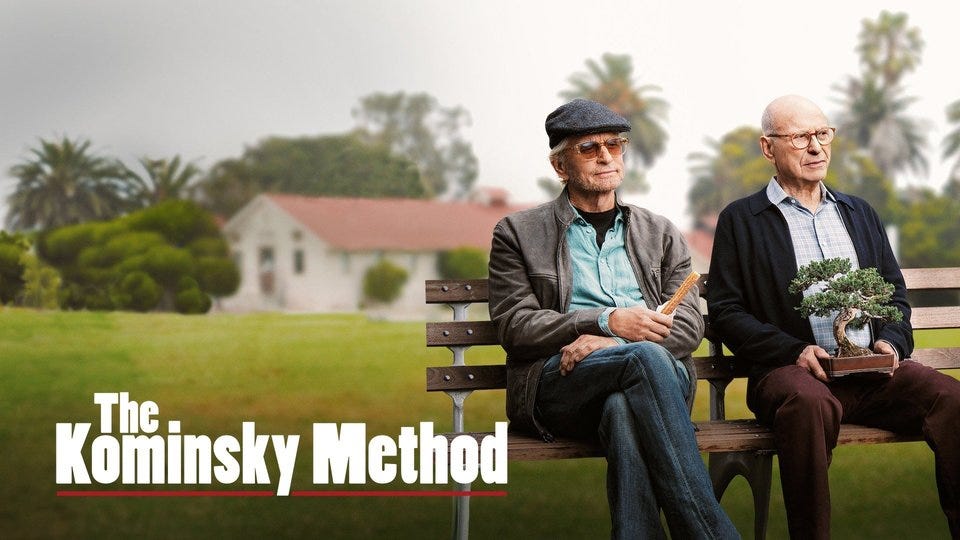A Meditation on Ageing
On viewing The Kominsky Method
In the schemata of life and death, we either drown in living or make unreasonable pacts with death. When the inexorability of expectations meets the grindstone of reality, our senses stop to do rainchecks. However intense our relationship with breath, there are junctures which give us glimpses of how with age, choices dwindle, abilities require real and emotional stents to lay propped, and we slowly sink into the realization that we might not be able to conquer all worlds any more.
But hark, what if nothing fazes us? When we match the inevitability with inexorability. When we stop looking for second chances, no, we DEMAND our twentieth chance, and we demand with such force and felicity that the universe stands, glares, groans and gives up.
The Kominsky Method is a story of two old men snatching their chances and running with them... often in different - never diffident - directions.
Acerbic but inseparable, true but heartful, companions, first responders, last resorts - both Norman and Sandy Kominsky were witnesses and writers of each other's lives. Both touching their eighties, and with deaths and divorces galore behind them, and having done with second-guessing life, they grab what comes their way with both hands, reveling or regretting their choices at leisure. But sometimes with abandon, and sometimes with cynical tiredness.
Kominsky is an acting coach, and as he talks of cinema, the drama of his life seeps quietly into his expositions. After surviving three divorces, innumerable affairs and continuous check-outs from appointments with mortality, his prostrate and his arteries give him reality checks. Nothing is inseparable. As his constant companion, Norman loses his wife of 40 years to cancer, has a daughter who needs rehab for the eighth time, and is himself questioning when the equations of life run out of variables.
And as both friends swap notes on love lives, second chances, igniting passion, cancer, siblings, children, wives who leave or die, they get to the heart of what makes the heart of any life beat - companionship, which is it's own solace and meaning. It's presence is an oxygen cylinder and a much-loved armchair.
Irrespective of age, life doesn't stop from happening, and the twosome survive by eking out humor out of everything, even if it means they hurt others, or themselves, because it was the only way they knew how to keep afloat.
The poignancy of old age is close to our skins because the encounters to pain and loss come close to us. Death as an occurrence is undeniable - but it also becomes a chore as one keeps attending the funerals and prayer meetings of friends who pass on. It could also be a celebration that you outlived them. Which only means that there is that much more time to find purpose, and revel - or sink within and wait for the bells to toll.
No lamp needs to stop glowing, no opportunity let go of, because however tired our bodies, our dreams never ever die young. Ironically, it is both the benediction and the bane of old age.
Musings
Old age can be either a benediction or a curse. If we are independent and healthy in mind, body and spirit, it is celebratory time. It is a time for us to explore the world, it is a place where responsibilities have diminished and we can be our own best friend and a fulfillment to our own promise.
But hark! If health fails, and we have to rely on someone else for our most basic needs, we then have to sacrifice our most elemental freedom.
What do you look forward to in old age, and what do you most dread about it? Any thoughts? Write in. Sometimes, exploration of possibilities helps us determine the trajectory of our present lives.
My podcast “Uncut Poetry” is in the top 10% of ALL podcasts of the universe!
Want to know more about me?





I dread to think of becoming helpless...mentally or physically. Since I am without family.